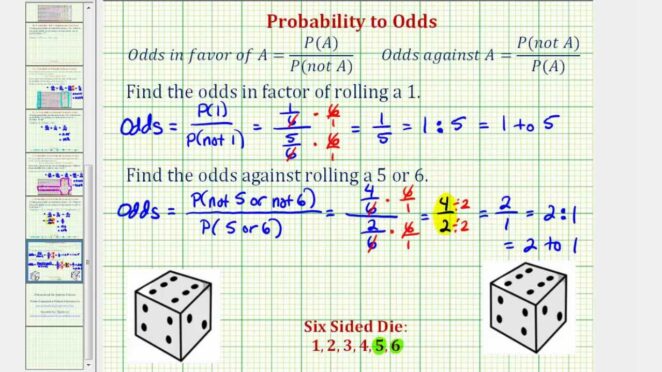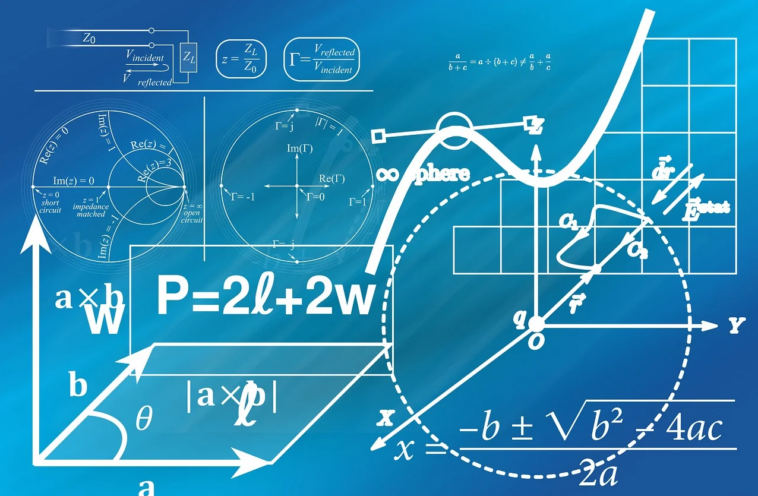In the dynamic realm of betting, where chance and strategy entwine, a surprising ally emerges: mathematics. Beyond the veneer of luck, mathematics holds the key to developing strategies that can turn the tide in favor of bettors who test their luck at Betway Casino Zambia and platforms alike.
This article takes a deep dive into the symbiotic relationship between mathematics and betting, revealing how mathematical principles can empower bettors to make educated decisions, manage risks, and ultimately amplify their prospects of success.
The Core of Chance: Probability and Odds

At the heart of every bet lies the intricate tapestry of probability theory—a mathematical discipline that quantifies the likelihood of various outcomes. Far from being mere numbers, probability and odds are the bedrock upon which betting decisions are built. By wielding these mathematical tools, bettors can dissect the potential outcomes of an event, calculate odds, and unearth hidden opportunities.
Imagine a horse race with one contender labeled an underdog, boasting odds of 4:1. Beneath this surface ratio, lies the insight that bookmakers grant this horse a 20% chance of clinching victory. However, for the astute bettor, armed with mathematical precision, the horse’s actual chance might be 30%. This discrepancy unveils a value bet—an instance where the bettor’s calculations outweigh the bookmaker’s odds.
Unveiling Future Possibilities: Expected Value
Expected value (EV) is the Rosetta Stone of probability theory, enabling bettors to decipher the outcomes of a series of bets. Its formula marries probability with payout, forming a roadmap to potential profitability. A positive EV signals the promise of profits over time, while a negative EV acts as a cautionary signpost of impending losses.
As an illustration, let’s explore a bet boasting a 60% probability of success and a payout of $200 for a $100 stake. Calculating the expected value, we find:
EV = (0.6 \times 200) + (0.4 \times -100) = 120 – 40 = $80
The green light of a positive expected value indicates a wager that may yield profits over the long haul.
Beyond Crystal Balls: Regression Analysis and Predictive Modeling
The marriage of mathematics and betting transcends traditional boundaries, embracing advanced methodologies like regression analysis and predictive modeling. These tools harness historical data, unveiling patterns, trends, and correlations that pave the way for forecasting future outcomes. In sports betting, regression analysis scrutinizes player stats, team performance, and other variables to predict match results.
Machine learning leaps into the fray, crafting predictive models that encapsulate an array of variables—weather conditions, player injuries, and beyond. These models erect a bridge between past data and future predictions, guiding bettors toward informed choices based on meticulously crafted algorithms.
Risk Taming: A Bankroll’s Guardian

In the realm of betting, prudent risk management and bankroll guardianship reign supreme. Here, mathematics emerges as the savior, guiding bettors to optimal wagers that stave off the specter of an emptied bankroll. The Kelly Criterion’s counsel joins forces with diversification and variance analysis, sprinkling bets across different events to dilute the impact of a singular loss.
As the mathematical guardian, risk management ensures longevity and sustainability in the face of fluctuating fortunes.
Intelligent Wagers through Data Analysis
Data analysis is the modern-day oracle for bettors seeking an edge. Delving into historical data unveils insights that elude the naked eye. By scrutinizing past performances, understanding player dynamics, and gauging trends, bettors can refine their predictions and elevate their decision-making. The interplay of mathematical algorithms and comprehensive data transforms betting into a cerebral sport.
Emergence of Live Betting Analytics
The evolution of live betting has birthed a new dimension for mathematical prowess. In-play analytics, powered by real-time data feeds, allow bettors to adjust strategies on the fly. With each pitch, swing, or touchdown, mathematics aids in recalculating odds and predicting shifts in momentum. The synergy of swift data processing and analytical precision empowers bettors to seize fleeting opportunities in the dynamic landscape of live events.
Minding the Psychological Game

While mathematics furnishes a robust foundation, psychology complements it. Emotions often cloud rational judgment, leading to impulsive bets and undue risks. Recognizing this, bettors can harness mathematical principles to create predefined staking plans that circumvent emotional decision-making. By aligning psychology with strategy, mathematics fortifies bettors against the pitfalls of impulsivity.
Ethics and Fair Play in Betting
Mathematics doesn’t merely offer a strategic advantage; it also promotes ethical conduct. Fair odds and equitable play are principles upheld through mathematical rigor. Payout ratios, probabilities, and the very structure of betting systems are underpinned by mathematical standards of fairness. Embracing these principles ensures that the betting arena remains an equitable space, enhancing its integrity and fostering trust among all participants.
The Cryptocurrency Conundrum
The rise of cryptocurrencies has introduced a new layer of complexity to the mathematical landscape of betting. Blockchain technology and digital currencies are reshaping how bets are placed, recorded, and settled.
The transparency and security afforded by blockchain enhance trust, while the volatility of cryptocurrencies introduces intricate calculations for both bettors and bookmakers. Navigating this uncharted terrain requires a blend of mathematical acumen and adaptability to the evolving world of digital assets.
The Quest for Arbitrage Opportunities

Arbitrage, a lesser-known mathematical strategy, involves capitalizing on price discrepancies for the same event across different bookmakers. While the opportunities are rare and require swift action, they underscore the power of mathematics in identifying minute variations that can lead to guaranteed profits.
The ability to spot such opportunities hinges on an intricate understanding of odds, probability, and the willingness to monitor multiple platforms concurrently. By unearthing these hidden gems, bettors reveal yet another facet of mathematics in their pursuit of smarter betting strategies.
Conclusion
The nexus of mathematics and betting ushers in a new era—an era where chance is refined by calculation and luck enriched by strategy. Probability theory, the Expected Value concept, the Kelly Criterion, and advanced techniques like regression analysis all coalesce to forge the foundation of successful betting strategies.
However, the caveat stands firm: mathematics does not nullify the role of luck. Unanticipated outcomes may still thwart even the most finely tuned strategies. Yet, by infusing mathematical rigor into their decision-making processes, bettors attain a heightened sense of control and a better shot at crafting a narrative of consistent, long-term success.




